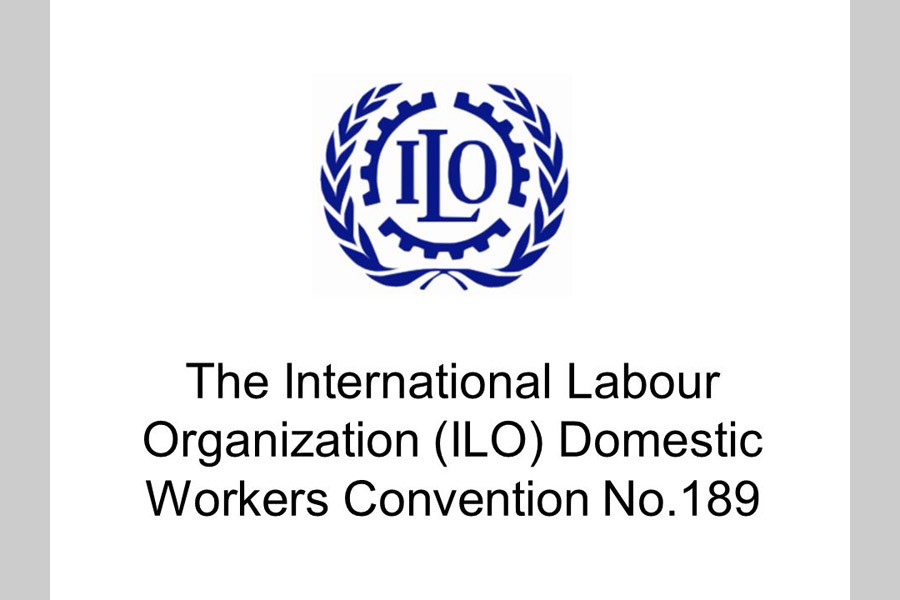
Published :
Updated :

How the plight of the domestic workers is both at home and abroad beggars description. Details of inhuman torture including sexual violence some domestic helps are subjected to become public more often than not, courtesy of the media. Lately, more and more migrant female workers are returning from some of the Middle-east countries because of their abuse as sex slaves. Yet the official position here is 'see nothing and do nothing'. Turning a blind eye to the miseries of such workers is unacceptable because it is denial of justice and tantamount to becoming a party to the crime. The country's image also suffers on account of this negative role play. It is exactly at this point the importance of the International Labour Organisation (ILO) Convention can be realised. But even on this point too, the government has let the cause down by not ratifying the ILO Convention No. 189 adopted in 2011.
Clearly the Convention 189 could be a handy and effective instrument for fighting the abuses and violence against domestic helps. Seven years have already passed since the adoption of the Convention and the bureaucratic dilly-dallying is yet to move the process ahead. Is it because domestic workers are the lowest of the low in social hierarchy? Their employment is mostly informal and not regulated by officially approved rules and laws. Disorganised and at times underaged, they are not even aware of their rights. The question of organising them under a banner to protest against maltreatment and demand well-defined service rules such as minimum wages, working hours, holidays and other facilities does not even arise. It is the rights organisations which take up their causes. But so far, even such organisations have not been successful in making the point quite effectively.
This time, though, some rights organisations have joined hands in order to advance the cause through observance of different programmes spanning long two years. Arrangement of workshops and distribution of leaflets or similar other campaigns surely have their values when the target people themselves get involved with the process. Unfortunately, there is little chance that domestic workers working at city people's residences will have their representation there. Even those domestic workers serving for different families by hourly arrangement are unlikely to have their representation. Only those domestic workers trained and placed at different residences by a handful of commercial entrepreneurs stand a chance of attending gatherings arranged by the rights groups.
By all accounts the voices of domestic workers and the rights organisations taking up their causes are still muted. Unless people in the administration become receptive enough of the neglected segment of society, the prospect of changing the lot of the wretched is dim. So it is urgent that the rights organisations tried to make their point by arranging deliberations with people in the official circle. They must earn the rights of the underprivileged through negotiations. Now that the few enterprising outfits have organised formal training, this is going to empower the domestic female workers in particular. Working on this small step will take them to formal recognition of their service.


 For all latest news, follow The Financial Express Google News channel.
For all latest news, follow The Financial Express Google News channel.